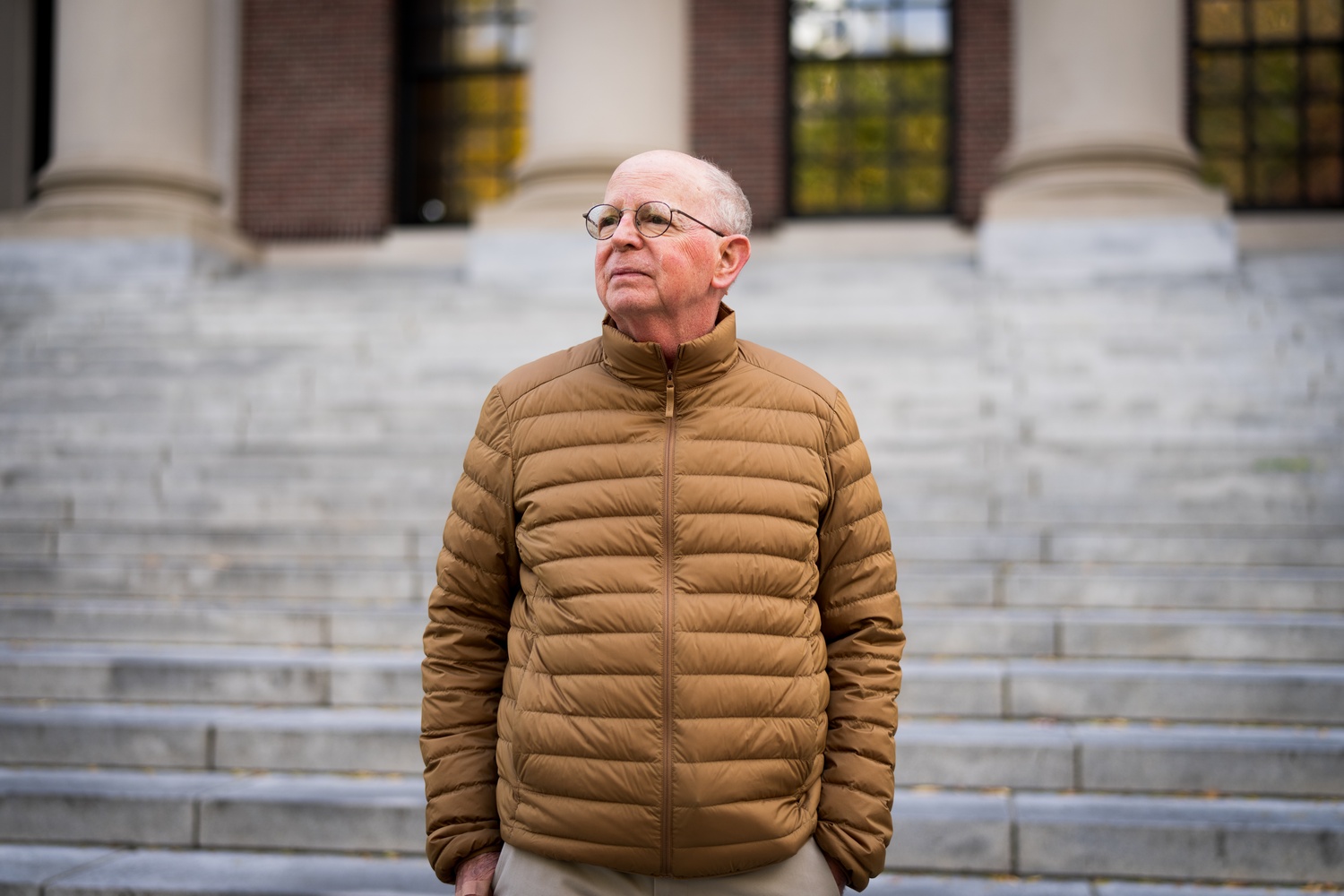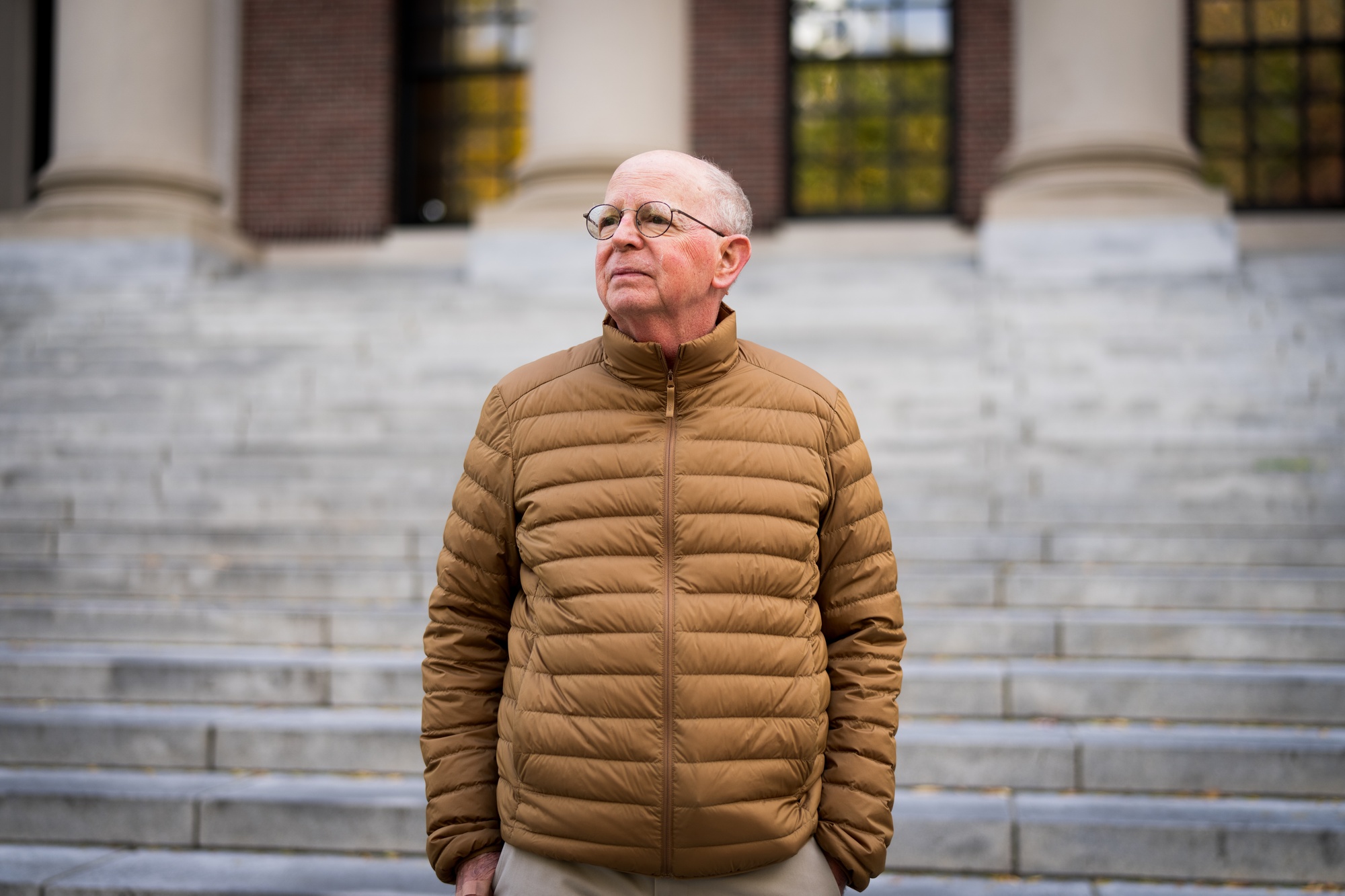
Retiring from Work to School: HILR and a Lifelong Liberal Arts Education
At the Harvard Institute for Learning in Retirement under the Division of Continuing Education, a liberal-arts education is not bound by a four-year window — it’s an ongoing endeavor supported by a community of lifelong learners.
The HILR program currently engages around 500 retired seniors from the Greater Boston area in a peer-learning and teaching model. Participants design and enroll in more than 120 course offerings that span a multitude of topics. “Large-, Medium-, Small-Scale in the Built Environment,” “Democracy at a Crossroads: Retreat or Rebirth?” and “Lorca, Dalí, Bunel: A Surrealist Bromance” are just a few selections from HILR’s Fall 2024 catalogue.
These tight-knit seminars take place once a week for two hours at a beige-painted residence on 34 Concord Avenue. Retirees can also audit one Harvard Extension School course each semester, listen in on a Friday speaker series led by Harvard faculty, join special interest groups, and share meals in between classes.
Often, HILR participants hear about the program through friends and affiliates who identified them as great candidates.
A retired trial lawyer and former president of the Boston Bar Association, Joe Kociubes discovered HILR through a colleague.
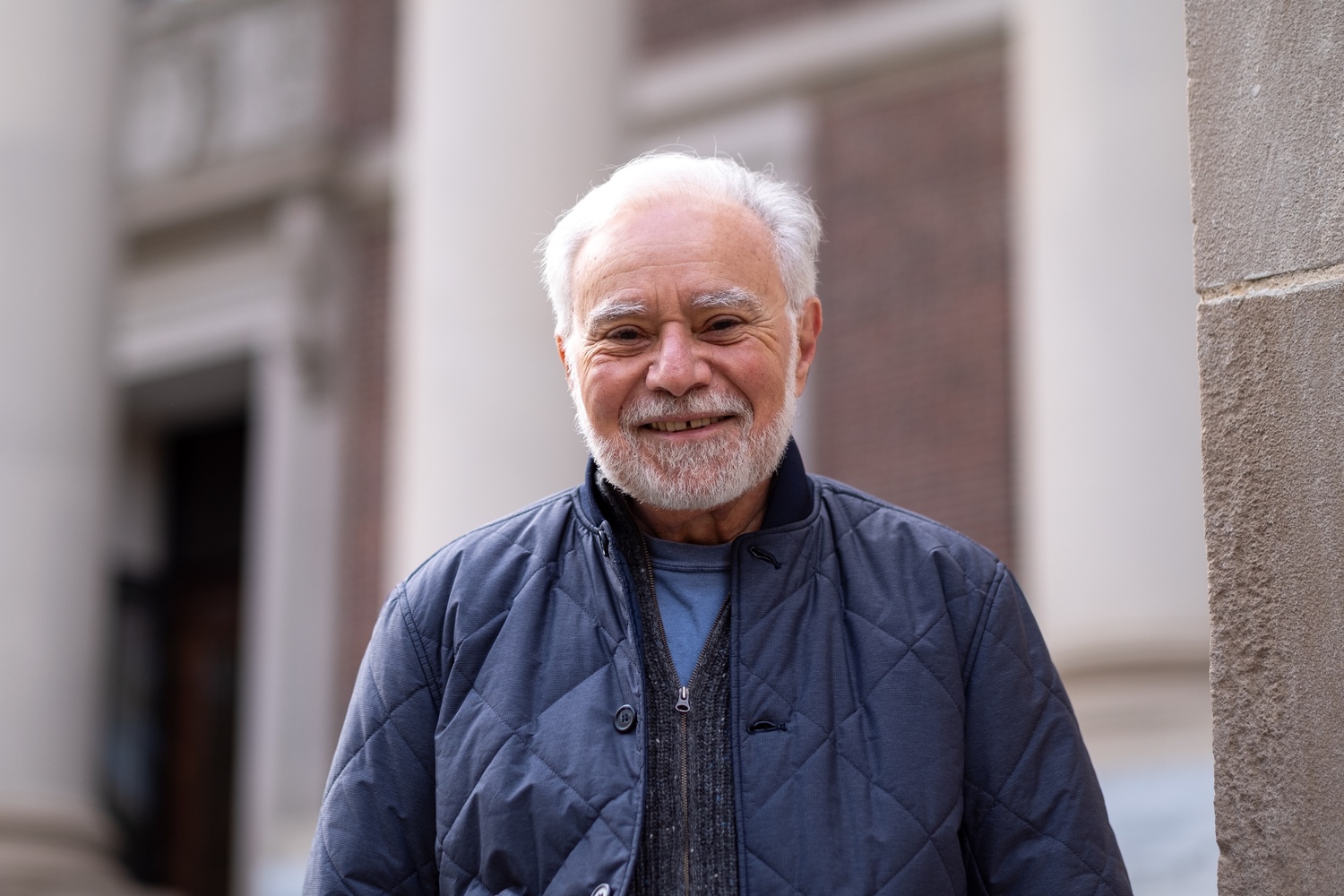
Instead of moving to Florida,” Kociubes was always looking for something “expansive rather than contractive” in retirement. After decades of heading committees and associations, Kociubes also had no interest in doing something he knew: “mostly legal-related stuff,” he says.
The “something” that pushed Kociubes to stretch in new ways ended up being HILR: He currently leads a course on Don Quixote and the modern novel.
The opportunity for participants to design and lead courses is a fundamental aspect of the HILR experience.
Richard H. Andrews Jr., another HILR member, pursued a career as a lawyer before joining the program, but throughout his life his “avocation was art.” After retirement, Andrews was able to explore his passion by leading a 2024 HILR seminar on the painter Caravaggio, and one on Jackson Pollock and Lee Krasner in 2025.
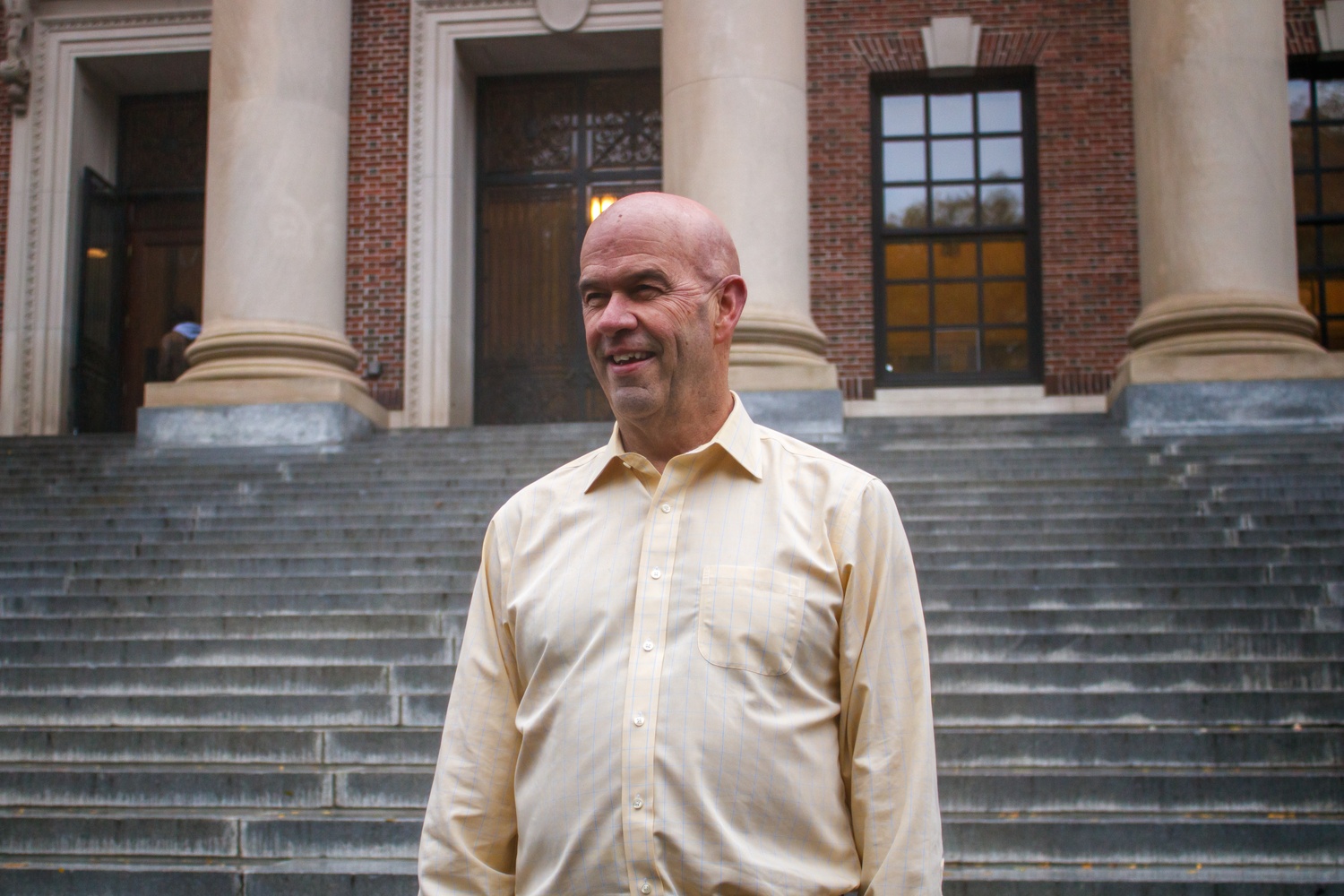
“The whole point is forcing yourself to learn something new to the point where you can lead a class in it,” Kociubes says.
Karen Stone has been a member of the program for eight years, leading courses on various topics in literature, including a full-year course on James Joyce’s Ulysses last year. Although when she joined the program, Stone had not anticipated one day developing classes, she now describes leading seminars as “probably the most fun thing I’ve ever really done.”
“I love doing it. I love picking this thing that I want to read and really working hard on it and understanding it and then sharing it with other people,” Stone says.
While academics are always important, the heart of any institution lies in its community. At Harvard College, freshmen are often told that the best place to make friends is in the dining hall. All you have to do is sit down next to someone new.
At HILR, the same principle applies. The lunchroom serves as the social center of the program, where members, whether coming from morning or afternoon classes, gather to share meals and conversations.
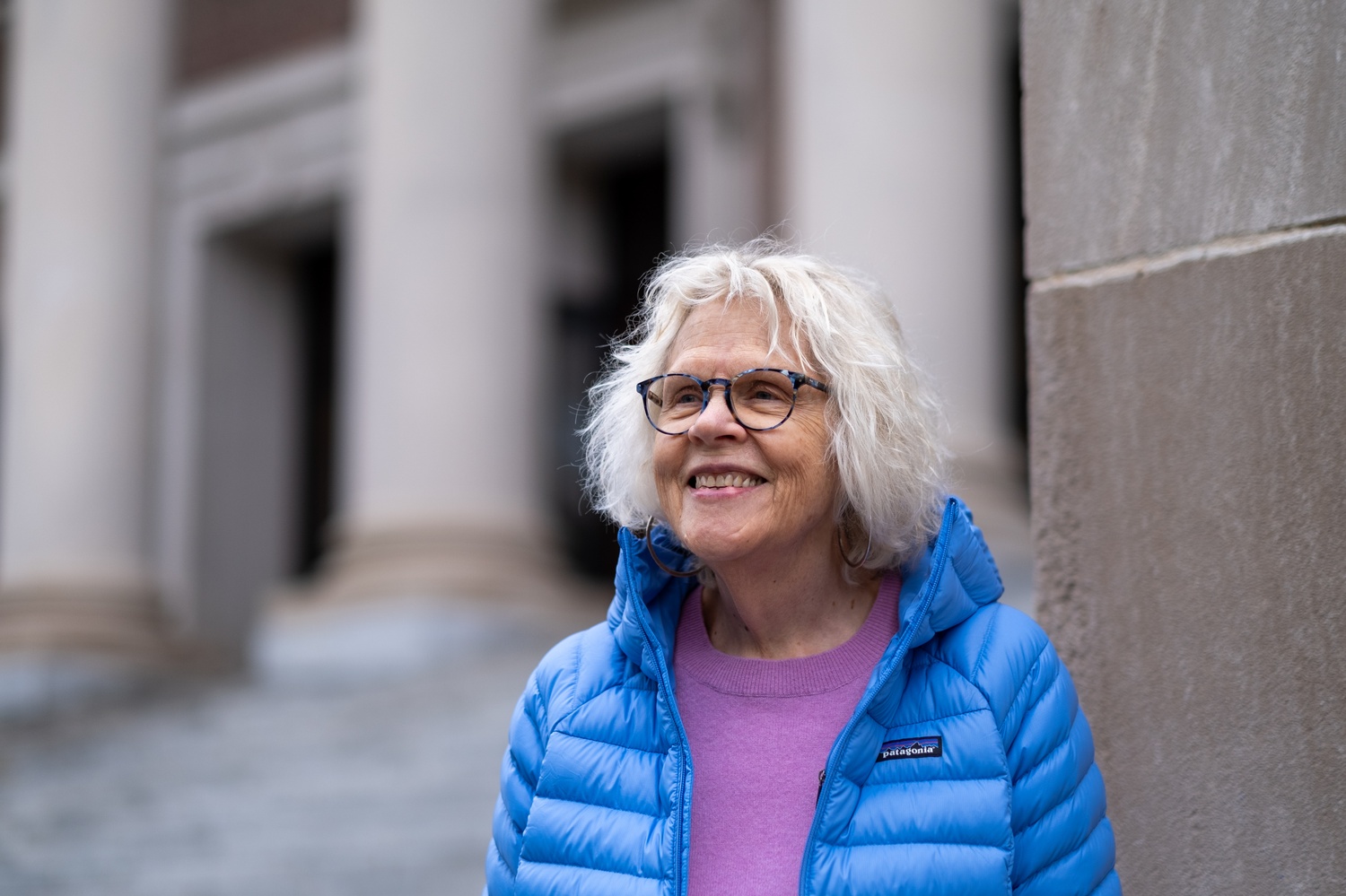
“In my first couple of years, I’d sit down at a table with people I had never met and introduce myself and have a conversation,” Andrews says.
Beyond the classroom, HILR members stay in touch using a Google Forum. Posts range from someone asking if anyone knows a plumber in Arlington to organizing a trip to a new exhibit at the Essex Peabody Museum, according to Stone. When one HILR member, a close friend of Stone’s, passed away from complications of pancreatic cancer, the community used the forum to organize a gathering in her memory.
Stone and others met at McCarthy’s & Toad, an Irish bar near Porter Square. “I posted about it on the forum, and 30 people came. We had a drink, talked about Mary, and her husband shared stories from her final days. It was really very meaningful,” says Stone.
For a community of members aged 55 and older, these moments of remembrance are deeply valued. “A lot of people said afterward, ‘We really need to do this more often.’ Because people do die in this program, you know, we’re old,” Stone says. “If we hadn’t done that, everybody would have their free-floating memories, but it wouldn’t have been buttoned down at all."
Members say HILR has given them the chance to explore subjects that they could not delve into earlier in their lives due to family obligations, careers, or life just getting in the way.
“You have no idea whether you will have the opportunity to do the things you’re really interested in. That said, it takes a lot of courage to pursue a passion that may not ever make you a living,” Stone says.
“And I don’t think there’s a right answer, but I do think it might be a mistake to put off all your joy to the future, because you might not have a future,” Stone adds.



